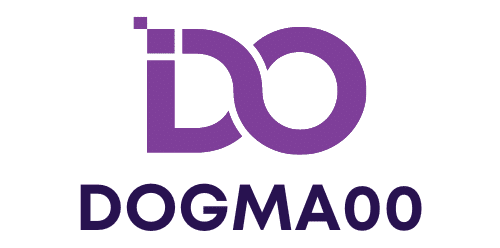How Is Technology Impacting the Personalization of Consumer Goods and Services?

Imagine walking into a store where every product displayed is tailored to your preferences, based on your past purchases, latest searches, or favorite activities. Sounds dreamy, right? Welcome to the era of personalization. With advancing technology, businesses are shifting from a generalized approach to a personalized service for their customers. How is this transformation taking place, and what does it mean for businesses and consumers alike? Let’s take a deep dive into the world of technology-aided personalization.
The Rise of Personalized Marketing
Historically, businesses have been employing traditional marketing methods such as billboards, TV, and radio advertisements, which are broad-brush and impersonal. However, with technology’s rise, personalized marketing has taken center stage.
Cela peut vous intéresser : How Are IoT Devices Transforming the Management of Chronic Health Conditions?
The use of data and technology to create tailored experiences is not a new concept. Marketers have been segmenting their audiences for years, based on factors such as age, location, and spending habits. However, with the advent of digital technology, personalized marketing has been taken to a whole new level. Digital platforms collect a wealth of data about their users, from the sites they visit to the products they buy, providing vital insights for businesses about their customers’ behaviour and preferences.
Companies can now engage their customers on a much more personal level. For instance, a business selling fitness equipment might target a customer who has shown interest in health and fitness on social media, offering them a personalized discount on a home gym set. This would not be possible without the use of technology.
A voir aussi : Can Virtual Reality Offer New Dimensions in Historical Education and Preservation?
Technology’s Role in Service Personalization
Service personalization is another area where technology has a significant impact. Unlike a product, a service cannot be stored or returned, making the quality of service delivery critical. Personalizing a service can enhance the customer experience, leading to increased customer loyalty and, ultimately, higher profits.
Technology, particularly artificial intelligence (AI) and machine learning, is playing a crucial role in service personalization. AI can analyze customer data to identify patterns, preferences, and needs. This will guide businesses in tailoring their services to each customer’s needs.
For example, customer support can be personalized using AI. If a customer frequently contacts support for a specific issue, AI can recognize this pattern and direct the customer to a specialist in that area, reducing the customer’s wait time and improving their overall experience.
Personalization through Segmentation and Targeting
One of the primary ways businesses are personalizing their offerings is through segmentation and targeting. Rather than treating their entire customer base as a single group, businesses are dividing their customers into distinct segments based on shared characteristics or behaviors.
This segmentation can be based on various factors, including demographics, buying habits, preferences, and even psychographics, which looks at attitudes, values, and lifestyles. Technology makes it possible to collect and analyze this data at scale, allowing businesses to segment their customers more precisely and offer more personalized experiences.
Once a business has identified these segments, it can then target them with personalized marketing messages and offers. For example, a travel company might target customers who frequently travel to luxury resorts with offers of discounted flights and hotel stays to similar destinations.
The Future of Personalization in the Digital Age
As technology continues to evolve, so will the ways in which businesses are capable of personalizing their offerings. The future is likely to bring even more advanced personalization techniques, driven by even more sophisticated technology.
One area where we can expect to see substantial developments is in predictive personalization. This involves using data and AI to predict what a customer will want or need in the future, allowing businesses to meet these needs proactively. For example, a grocery store might predict that a customer is likely to run out of milk based on their past purchasing patterns and send them a personalized reminder to buy more.
Moreover, as more aspects of our lives become digitized, businesses will have access to more diverse and detailed customer data. This will allow them to create even more accurate customer profiles and deliver even more personalized experiences.
So, while technology is already playing a significant role in personalizing consumer goods and services, it’s clear that we’re only just scratching the surface of what’s possible. As businesses continue to embrace technology and data, we can expect to see more personalized, customer-centric offerings in the future. The era of personalization is here to stay, and it’s changing the face of business as we know it.
Real-Time Personalization with Advanced Technology
In the present digital world, real-time personalization has emerged as an important trend. It is an advanced method of personalization technology that enables businesses to deliver individualized content to their customers "on-the-spot". This implies that businesses can adapt their offerings according to the current preferences, behaviors, or location of the user, rather than relying solely on historical data.
Real-time personalization is made possible by the advanced capabilities of AI and machine learning algorithms. These technologies can process and analyze a massive amount of customer data rapidly, enabling businesses to respond to the changing preferences of their customers in a matter of seconds.
For instance, a customer browsing a fashion retailer’s website can be shown personalized product recommendations based on their current browsing behavior. If the customer is currently looking at dresses, the retailer can recommend more dresses from the same or similar brands, or suggest complementary items like shoes or accessories. This kind of real-time, dynamic personalization can significantly enhance the shopping experience, leading to higher customer satisfaction and retention.
Furthermore, real-time personalization can extend beyond the digital realm to the physical world as well. For instance, with the help of real-time data and Internet of Things (IoT) technology, a coffee shop could recognize a returning customer as soon as they walk in the door and prepare their usual order. Such use of technology not only improves customer service but also fosters customer loyalty.
The Transformational Impact of Personalization Technology on Customer Service
The impact of personalization technology extends to customer service, one of the key aspects for businesses to build customer loyalty and ensure customer success. The traditional one-size-fits-all approach is no longer effective, and businesses have to leverage technology to personalise and improve customer service.
AI and machine learning can help businesses to predict and understand the needs of their customers better. For instance, AI can learn from the past interactions of a customer with the customer support to anticipate their needs and provide more efficient service. If a customer frequently faces a certain issue, AI can identify this pattern and suggest relevant solutions even before the customer reaches out for support.
Moreover, digital transformation has allowed businesses to be present across various channels such as email, social media, and chatbots, providing customers with multiple touchpoints to interact with the business. These omnichannel experiences allow businesses to provide consistent and personalized customer service across all platforms.
For example, a customer who has been browsing a company’s products on social media can later be retargeted with personalised ads when they visit other websites. If they then visit the company’s website and have a query, a chatbot with access to this history can provide more relevant and personalised assistance, improving the customer experience.
Conclusion: The Increasing Significance of Technology in Personalization
In conclusion, technology is playing an increasingly significant role in the personalization of consumer goods and services. From enhancing the shopping experience to improving customer service, technology is enabling businesses to engage with their customers in a more personal and meaningful way.
Businesses that harness the power of technology to understand and meet their customers’ unique needs stand to gain a competitive edge in today’s dynamic marketplace. They can achieve higher customer satisfaction, customer retention, and customer loyalty, leading to sustained business growth.
As we move forward, the role of technology in personalization is expected to grow even further. With advancements in AI, machine learning, and other digital technologies, the possibilities for personalization are expanding. The future promises even more sophisticated personalization techniques and strategies, redefining the customer journey and transforming the way businesses interact with their customers. The era of personalization is not just here to stay but is set to evolve in ways that will continue to reshape the business landscape.
